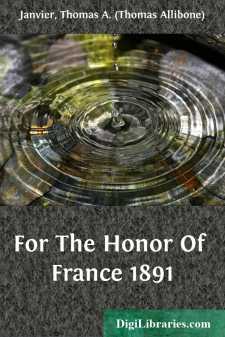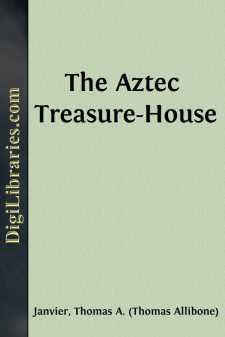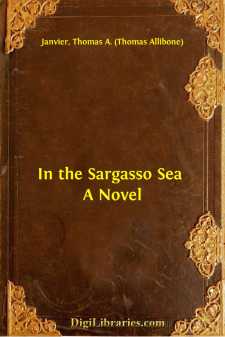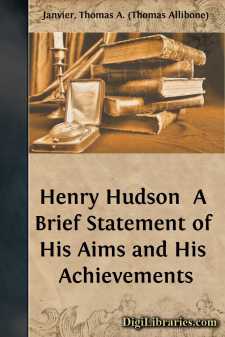Categories
- Antiques & Collectibles 13
- Architecture 36
- Art 48
- Bibles 22
- Biography & Autobiography 813
- Body, Mind & Spirit 142
- Business & Economics 28
- Children's Books 15
- Children's Fiction 12
- Computers 4
- Cooking 94
- Crafts & Hobbies 4
- Drama 346
- Education 46
- Family & Relationships 57
- Fiction 11829
- Games 19
- Gardening 17
- Health & Fitness 34
- History 1377
- House & Home 1
- Humor 147
- Juvenile Fiction 1873
- Juvenile Nonfiction 202
- Language Arts & Disciplines 88
- Law 16
- Literary Collections 686
- Literary Criticism 179
- Mathematics 13
- Medical 41
- Music 40
- Nature 179
- Non-Classifiable 1768
- Performing Arts 7
- Periodicals 1453
- Philosophy 64
- Photography 2
- Poetry 896
- Political Science 203
- Psychology 42
- Reference 154
- Religion 513
- Science 126
- Self-Help 84
- Social Science 81
- Sports & Recreation 34
- Study Aids 3
- Technology & Engineering 59
- Transportation 23
- Travel 463
- True Crime 29
The Uncle Of An Angel 1891
Categories:
Description:
Excerpt
When Mr. Hutchinson. Port, a single gentleman who admitted that he was forty-seven years old and who actually was rising sixty, of strongly fixed personal habits, and with the most positive opinions upon every conceivable subject, came to know that by the death of his widowed sister he had been placed in the position of guardian of that sister's only daughter, Dorothy, his promptly formed and tersely expressed conception of the situation was that the agency by which it had been brought about was distinctively diabolical. The fact may be added that during the subsequent brief term of his guardianship Mr. Port found no more reason for reversing this hastily formed opinion than did the late King David for reversing his hastily expressed views in regard to the general tendency of mankind towards untruthfulness.
The two redeeming features of Mr. Port's trying situation were that his duties as a guardian did not begin at all until his very unnecessary ward was nearly nineteen years old; and did not begin actively—his ward having elected to remain in France for a season, under the mild direction of the elderly cousin who had been her mother's travelling companion—until she was almost twenty. When she was one-and-twenty, as Mr. Port reflected with much satisfaction, he would be rid of her.
Neither by nature nor by education had Mr. Hutchinson Port been fitted to discharge the duties which thus were thrust upon him. His disposition was introspective—but less in a philosophical sense than a physiological, for the central point of his introspection was his liver. That he made something of a fetich of this organ will not appear surprising when the fact is stated that Mr. Port was a Philadelphian. In that city of eminent good cheer livers are developed to a degree that only Strasburg can emulate.
Naturally, Mr. Port's views of life were bounded, more or less, by what he could eat with impunity; yet beyond this somewhat contracted region his thoughts strayed pleasantly afield into the far wider region of the things which he could not eat with impunity; but which, with a truly Spartan epicureanism, he did eat—and bravely accepted the bilious consequences! The slightly anxious, yet determined, expression that would appear upon Mr. Port's cleanshaven, ruddy countenance as he settled himself to the discussion of an especially good and especially dangerous dinner betrayed heroic possibilities in his nature which, being otherwise directed, would have won for him glory upon the martial field.
In minor matters—that is to say, in all relations of life not pertaining to eating—Mr. Port was very much what was to be expected of him from his birth and from his environment. Every Sunday, with an exemplary piety, he sat solitary in the great square pew in St. Peter's which had been occupied by successive generations of Ports ever since the year 1761, when the existing church was completed. Every other day of the week, from his late breakfast-time for some hours onward, he sat at his own particular window of the Philadelphia Club and contemplated disparagingly the outside world over the top of his magazine or newspaper. At four, precisely, for his liver's sake, he rode in the Park; and for so stout a gentleman Mr. Port was an excellent horseman.
On rare occasions he dined at his club. Usually, he dined out; for while generally regarded as a very disagreeable person at dinners—because of his habit of finding fault with his food on the dual ground of hygiene and quality—he was in social demand because his presence at a dinner was a sure indication that the giver of it had a good culinary reputation; and in Philadelphia such a reputation is most highly prized. An irrelevant New York person, after meeting Mr. Port at several of the serious dinnerparties peculiar to Philadelphia, had described him as the animated skeleton; and had supplemented this discourteous remark with the still more discourteous observation that as a feature of a feast the Egyptian article was to be preferred—because it did not overeat itself, and did keep its mouth shut....












